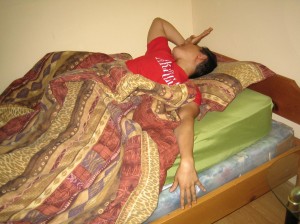Overview Of Sleep Patterns
While we sleep, our brains go through five different stages. A sleep cycle consists of stages 1,2,3,4 and REM (known as rapid eye movement). One total sleep cycle continues for about 100 minutes. So during a normal night’s sleep, an individual will encounter about four or five sleep cycles.
Stages 1 and 2 consists of light sleep stages from which an individual can awaken easily:
- Throughout these stages, eye movements settle down and ultimately stop, the breathing and heart rates decrease, and body temperature declines.
Stages 3 and 4 are sleep stages that are deeper than stages 1 and 2:

- It’s harder to awaken somebody during these stages, and when roused, an individual will feel dazed and disordered for a few minutes.
- Out of all the stages, 3 and 4 are the most stimulating of the sleep cycle — this is the sort of sleep we desire when we’re worn-out. During these stages the body discharges hormones that which helps with development and growth.
The last stage of the sleep cycle is referred to as REM due to the rapid eye actions that takes place when you are asleep:
- Throughout the REM sleep stage, other bodily changes take place — breathing is fast, the heart rate is faster, and the muscles don’t move. During this stage of sleep dreaming usually occurs.
Prevention Of Early Bedtime
- Studies shows that teenagers must have about 9 hours of sleep per night.
- So, a teenager who needs to get up for school at 6 a.m. must go to bed at 9 p.m. in order to attain the 9 hour mark.
- Research has found that most teenagers have difficulty going to sleep that early.
- Their brains logically work on later agendas and aren’t prepared for bed, especially during the test or examination period.
- During puberty, the body’s natural clock is rearranged, forcing a teen to go to bed later during the night and to wake up later in the morning.
Related Video On Sleep Disorders
http://www.youtube.com/watch?v=wJSC-Syr_n8
